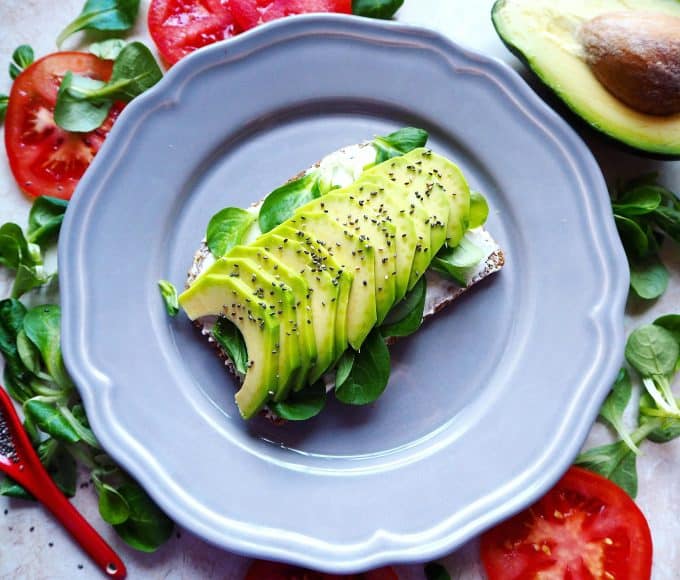 A food is considered to be a superfood when it delivers high amounts of vitamins, nutrients, antioxidants, minerals, fibers, and other necessary and helpful healthy things that your body needs in a small, low-calorie amount. Superfoods might be one of the newest dietary buzzwords around, but the truth is, most true superfoods have been around forever, used historically for better health, nutrition and disease-prevention, and can be found in almost all supermarkets. Here’s a list of ten super foods that you should incorporate into your diet to ensure a healthy and properly-functioning body and vibrant longevity of life.
A food is considered to be a superfood when it delivers high amounts of vitamins, nutrients, antioxidants, minerals, fibers, and other necessary and helpful healthy things that your body needs in a small, low-calorie amount. Superfoods might be one of the newest dietary buzzwords around, but the truth is, most true superfoods have been around forever, used historically for better health, nutrition and disease-prevention, and can be found in almost all supermarkets. Here’s a list of ten super foods that you should incorporate into your diet to ensure a healthy and properly-functioning body and vibrant longevity of life.
1. Avocados
When it comes to a fruit that tops the rest in vitamin E, magnesium, folate, potassium, and the healthy monounsaturated fat, avocados take the prize. Avocados also contain decent levels of vitamin C and even a little bit of protein. These nutrient-dense, versatile fruits have been scientifically proven to lower cholesterol when eaten regularly. They also contain omega-3 fatty acids which are crucial to a healthily functioning body. While avocados used to have a bad reputation for being high in fat, it’s important to remember that the kind of fat found in these fruits is the heart-healthy kind and a little goes a long way toward improving your health and can act as a carrier to help your body absorb fat-soluble vitamins and minerals.
2. Blueberries
Blueberries are known for having one of the highest antioxidant amounts of almost any food out there. Not only that, but they’re filled with manganese, fiber, vitamin C, and are just plain delicious. When trying to add blueberries to your diet, take note that many of the blueberries added to commercial cereals, oatmeal, muffins and ice creams are actually made of corn syrup and food coloring and only have blueberry flavoring. Your best bet for getting the powerful health benefits of blueberries is to eat either fresh or frozen whole fruit berries. These berries can be added to your cereals or oatmeal or any other recipe. Try some frozen blueberries as a quick, sweet, low calorie snack or for dessert.
3. Sweet Potatoes
Not only are sweet potatoes high in fiber, potassium, vitamin C and calcium, but they’re one of the best sources of vitamin A out there. These nutrient-dense vegetables have a naturally sweet flavor which means you can cut down on calories by forgetting about adding salt and butter. Keep in mind, however, that vitamin A is absorbed better into the body through fat sources since it‘s a fat soluble vitamin, so if sweet potatoes are your main source of vitamin A, consider adding a small amount of healthy fat to your recipe, such as a teaspoon of olive oil or grapeseed oil. Steaming or boiling sweet potatoes is the best option for cooking them as these methods help preserve as many of the natural enzymes and nutrients as possible.
4. Leafy Greens
All of the vegetables from the “leafy green” family are priceless in the nutritional and health value they have to offer. Vegetables such as kale, collard greens, swiss and other types of chards, turnip greens, mustard greens and beet root greens all contain incredibly high amounts of vitamins, from K to A to B’s to C. Calcium and iron are also found in these chlorophyll-rich superfoods that are filled with antioxidants. Also, herbs such as parsley and thyme are high in similar nutritional content and should be used as seasonings or edible garnishes whenever possible. By bringing these dense, leafy vegetables into your daily diet you’ll be getting an abundance of health benefits that will regulate and cleanse your body.
5. Green Tea
Green tea is a super drink if there ever was one. The high levels of the antioxidants known as epigallocatechin gallates (EGCG) found in this tea have been shown to slow down and reduce the growth of cancer cells, and in some instances can kill the cells altogether. Green tea consumption has also been linked to a decreased risk of heart disease, a more stable and healthy body weight, and even a longer life. Green tea also has slightly higher levels of caffeine than most teas so consider changing out a cup of your daily coffee for a cup of healthy green tea for the same energy boost with an added antioxidant boost.
6. Goji Berries
Goji berries are a sweet fruit, similar in size and texture to raisins but with a taste of something like a cranberry and something like a cherry. These native Asian berries are so healthy that they’re considered to be a medicine as much as a food in some cultures and are considered to be a traditional Chinese medicine. Just a small handful of these berries provides protein, 18 amino acids, 21 essential minerals, and a powerful dose of lycium barbarum polysaccharides. Some of the claims to fame of the goji berry include cancer prevention and anti-aging properties through powerful antioxidants, supporting eye health, and pretty much just benefiting your body, inside and out, in every way possible. Goji berries can be eaten as raw berries, used in teas and wines, or added to other recipes. Goji berry powder is available at health food stores to add convenience and portability to this superfood.
7. Almonds
Almonds can be amazingly healthy when eaten in moderation, which is about 10-12 nuts per day. While almonds are high in fat, they are also high in protein, fiber, vitamin E, magnesium, antioxidants, and monounsaturated fats. Almonds help keep your arteries and heart healthy, help to lower cholesterol, can help prevent heart disease and diabetes, and can even help you to regulate your weight due to their high-fiber, hunger-quelling nature. Try eating them raw as a mid-day snack or get creative and throw them in salads and yogurts, pasta dishes and fruit-based desserts. Almond butters and almond milk are also good options for getting some of the benefits of almonds into your diet in a convenient and unique way.
8. Quinoa
Quinoa is a unique and interesting food with an interesting background. This seed, which is commonly considered a grain, is actually a relative of the healthy leafy green vegetable group of chards, kale, and spinach. This traditional Incan grain has a fluffy, nutty flavor when cooked and is incredibly versatile and healthful. Not only is quinoa high in protein, but it is actually a complete protein food because it contains all nine of the essential amino acids that make up a full protein. There are also high amounts of phosphorus, folate, magnesium and manganese in quinoa, as well as vitamin B2 and fiber. The gluten content of Quinoa is very low, making it a good whole grain for those with food allergies. Quinoa is filling yet low in calories and can be substituted in the place of oats for oatmeal, used in flour for making breads, can be made into pasta, or simply cooked and eaten like rice. Vegans will especially find this superfood beneficial due to the high and complete protein content, as well as the versatility in being able to add it to a wide range of common recipes and dishes.
9. Hemp Seeds
Hemp seeds are one of the most beneficial seeds for a human body and are far under-recognized for how powerful they are. Hemp seeds are among the rare foods that contain the perfect balance of omega-3’s and -6’s, alpha-linolenic acid, gamma-linolenic acid, stearadonic acid and an easily digestible blend of proteins that is nearly as complete as those found in meat products. This makes hemp seeds a great dietary supplement for vegans or others who abstain from animal proteins. Hemp milk is available at most health food stores and the seeds can be eaten raw, used in baking, toasted to enhance their nutty flavor, ground into a meal for use in baking, and other ways that make them convenient to consume.
10. Spirulina
Spirulina is a blue-green algae that is practically bursting with health benefits. Spirulina is about 70% pure amino acids, or proteins, whereas beef is only 22% protein. This amazing algae contains ten times as much beta carotene as carrots do, as well as vitamin B12 and blood-healing chlorophyll. Studies in India have shown spirulina to have anti-cancer and cell-healing properties when taken regularly over a long period of time. This algae contains trace vitamins and minerals including iron, calcium, and a number of B vitamins, and has been found to inhibit the replication of HIV cells in humans, help reverse cellular damage after chemotherapy, and overall be an almost magical source of healing and nutrition for a body. Spirulina can be taken in many forms, from pills to extracts to powders and can be found in most health food stores.
Carrie Thompson works for ViJuvenate.















